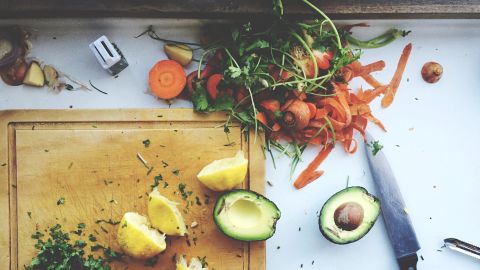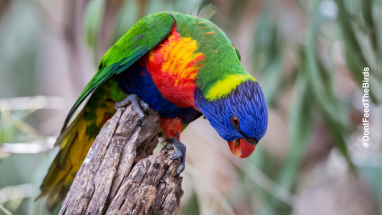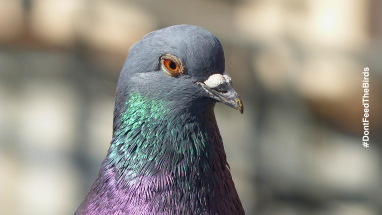Chances are, food scraps make up a pretty big chunk of what you’re throwing into your red lid bin every week. A 2018 survey estimates the average NSW household is throwing out around $4000 of food waste each year. That’s a big problem, not just for your hip pocket, but for the environment.
We spoke to our waste strategy manager Gemma Dawson about the kerbside food scraps recycling trial the City of Sydney has run since 2019.
Just how big of an issue is food waste?
It’s a significant problem. One third of our residents’ general waste (the stuff that goes in the red lid bin) are food scraps. Country-wide, the numbers are staggering. Food waste costs the Australian economy about $20 billion each year.
Each time we throw food into the bin we lose all the energy, water and other resources it took to produce, process, store, refrigerate, transport and cook that item. That’s on top of the impact when food is buried in landfill.
Each year, our residents throw 15,430 tonnes of food into the red lid bin, when food rots in landfill it gives off methane, a greenhouse gas 25 times more potent than carbon dioxide.
Why is the City running a trial?
It’s one of many things we’re doing to move towards a zero waste target by 2030. We want to reduce, reuse and recycle everything we can, rather than send waste to landfill.
By collecting food scraps on their own, we can turn them into a nutrient-rich fertiliser to use on gardens and farms.
The results of this trial will shape future food scraps collections across the the City of Sydney local area.”
How does the trial work?
We provide participating households with everything they need to start separating their food scraps, including a food scraps bin, kitchen caddy and compostable caddy liners.
Instead of throwing everything into the red lid bin, people involved in the trial collect food scraps in the kitchen caddy, then put them in a dedicated food scraps bin for collection and recycling.
The trial is in its second year and by the end of 2021 it will involve more than 21,000 households.
Other councils are changing what goes in the garden organics bin to include food scraps. Why doesn’t the City of Sydney allow kitchen waste or food organics into the garden organics bin?
For 2 reasons. Our garden organics already go to a specialised recycling facility, which doesn’t accept food waste. The organics are processed into quality mulch, soil conditioners and composts for landscaping and in parks and gardens.
Second, most people in the city live in apartments. That means there isn’t enough garden waste to make a combined food and garden organics service workable.
What’s in it for me?
It’s a simple action with a big environmental impact. By placing your food scraps in the food scraps recycling bin you’ll save landfill space, reduce greenhouse emissions, and produce fertiliser for gardens and farms. You can make a big difference!
What happens when the trial is finished?
The results of the trial will tell us whether we can continue or expand the service to a larger area.
We’ll look at how many registered buildings actively took part, how much food was recycled, bin contamination rates, how satisfied people were and ongoing costs.
What else can I do to manage my food waste better?
Try to avoid or reduce generating food waste in the first place – plan your meals, shop wisely and store food correctly. Join our Love Food Sydney program and follow the NSW Government's Love Food Hate Waste tips.
You can also compost food scraps or set up a worm farm. It can be tricky if you live in an apartment but it’s possible. Check out our tips for composting.
You can also contact your local community garden. Many in our area accept food waste for composting. Or get involved in community-run initiatives such as ShareWaste and Positive Waste.”
The City of Sydney’s food scraps recycling trial is now underway.
Published 12 November 2018, updated 3 May 2021



